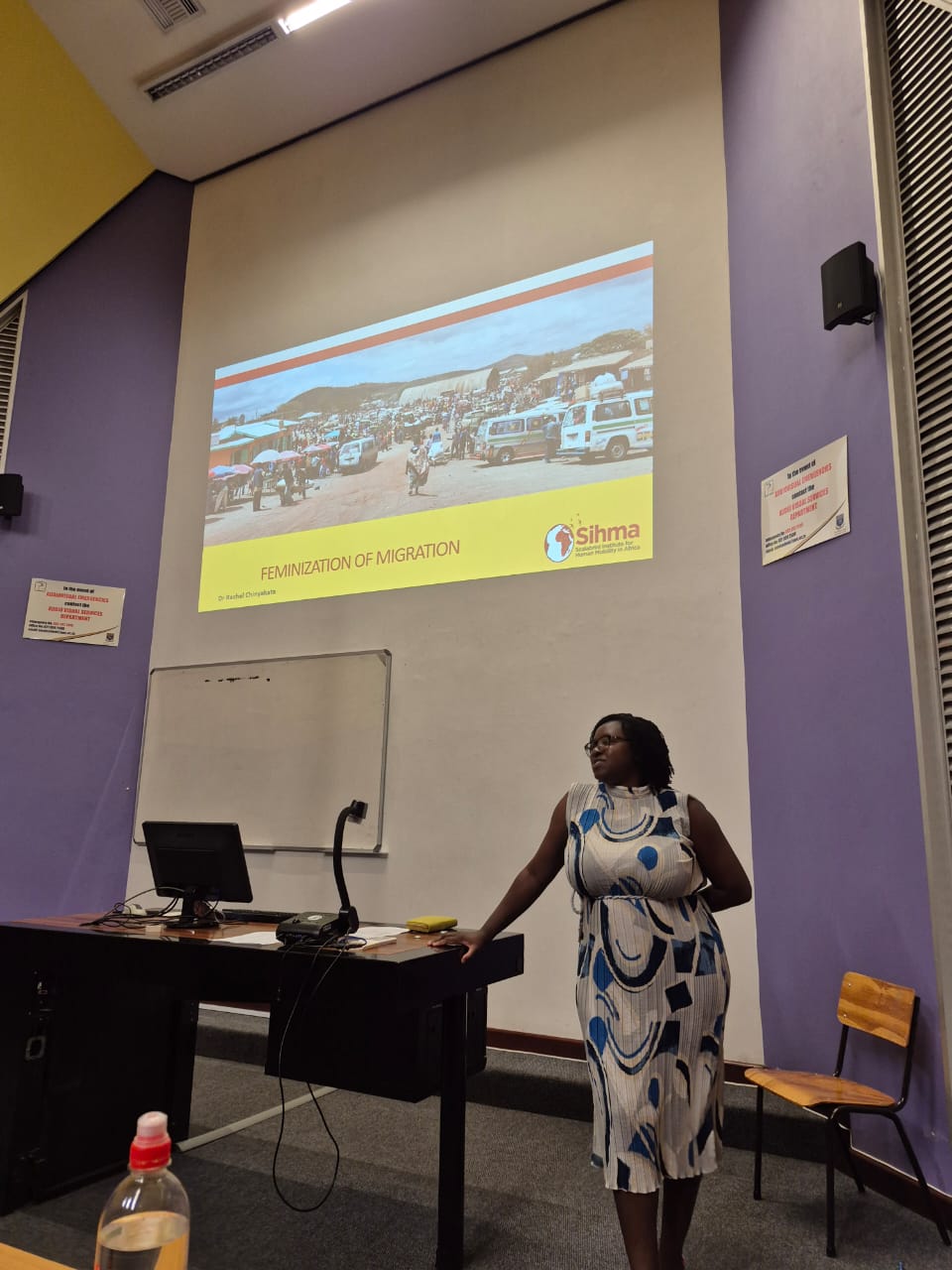
Feminization of Migration: Guest Lecture Presentation
On the 16th of April 2025 the Scalabrini Institute for Human Mobility’s Head of Research, Dr Rachel Chinyakata delivered a lecture at the University of the Western Cape (UWC). The lecture was organized by the Department of Women and Gender Studies at UWC as part of their Gender and Development module for third-year students. The lecture specifically focused on Gender, inequality and development zoning into the position of women in the global economy. A discussion of the global institutions for example the International Monetary Fund and World Bank, defining and analyzing the nature of structural adjustment policies (SAPs) with a focus on gender implications was conducted. The students were specifically interested on the reason why the African governments were part of the structural adjustment programmes and the impact that these programmes are having on the African economies. Additionally, linked to the structural adjustment programmes as a major contributor to migration we explored the feminization of migration by investigating the role of women as migrant workers in global care. In this part of the lecture, SIHMA introduced the students to the global trends and patterns of migration, push-pull factors to migration and the history and statistics of female migrants around the world. The lecture also explored the role of gender and migration, the feminisation of migration and ways in which different policies are still structured with the male migrant in mind. With the advent of the economic migration of women, there are large number of female migrants that are migrating to work in the care work industries especially in the global north where the ageing populations depend on care work from the global south. Therefore, the lecture also explored some of the factors contributing to the feminisation migration and care work, the advantages and the disadvantages of feminization of migration and care work. During the lecture SIHMA emphasized the role of a multi-sectorial collaboration including the role of policy makers, Civil Society, Government and trade unions to protect the rights of female migrants. The students were particularly interested in the work that is being done by different organisations on the ground and ways in which they could practically contribute. Given the relationship that SIHMA has with UWC, participation in this guest lecture was an opportunity for the organisation to further advance its position in bridging the gap between academia and work on the ground.
Categories:
- Gender And Migration
- Migration And Global Issues
- Migration And Refugees
- Migration In Africa
- Refugees
- SIHMA
- Social Impact
- Urban Development
Tags:
- Academia And Activism
- South Africa
- Laudato Si Project
- Research Advocacy
- Gender-based Discrimination
- Social Justice
- Trade Unions
- Civil Society
- Policy Makers
- Ageing Populations
- Global South
- Global North
- Care Work
- Economic Migration
- Gender And Migration
- Female Migrants
- Push-pull Factors
- Global Care Work
- Migrant Workers
- Feminization Of Migration
- Migration Policies
- African Economies
- World Bank
- International Monetary Fund
- Structural Adjustment Policies
- Global Economy
- Development
- Gender Inequality

